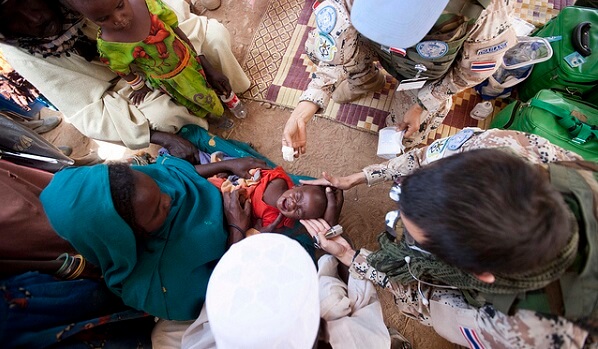The World Health Organisation (WHO) has released the first report of its kind on the health of refugees and migrants in the WHO European Region, which was developed in partnership with the Italian National Institute for Health, Migration and Poverty (INMP).
The report concludes that migrants and refugees are likely to have good general health. However, the report found that they are at greater risk of falling ill due to factors, such as the exposure to trauma and infections, lack of access to (continuous) health care and poor living conditions during the migration process as well as conditions of poverty and changes in lifestyle during their stay in the host country.
With regards to infectious diseases, the report explicitly stresses that – despite the widespread myth – there is a very low risk of transmitting communicable disease to the host population, in particular that there are no cases of “new” illnesses that do not already exist in the European Region.
The report concludes that, while progress was made in establishing refugee- and migrant-friendly health systems, more needed to be done, including providing quality and affordable health coverage and social protection regardless of legal status, addressing cultural and linguistic communication barriers and ensuring health-care workers were well equipped, experienced and aware of the particular risks faced by people arriving to the European Region.
The report summarizes more than 13,000 documents and provides an overview of the health status of refugees and migrants as well as health system responses in the 53 Member States of the WHO European Region and by identifying gaps. WHO Regional Office for Europe’s Migration and Health programme, aims at assisting Member States in promoting refugee and migrant health and addressing the corresponding public health aspects, in line with its Health 2020 policy framework and the United Nations (UN)’s Sustainable Development Goals.
For further information:
- WHO, Migrants and refugees at higher risk of developing ill health than host populations, reveals first-ever WHO report on the health of displaced people in Europe, January 2019
- UN, Migrants and refugees face higher risk of developing ill-health, says UN report on displaced people in Europe, January 2019
- The Guardian, Western lifestyles pose risk to migrants’ health, says WHO report, January 2019
Photo: (CC) UNAMID, March 2011
This article appeared in the ECRE Weekly Bulletin . You can subscribe to the Weekly Bulletin here.

